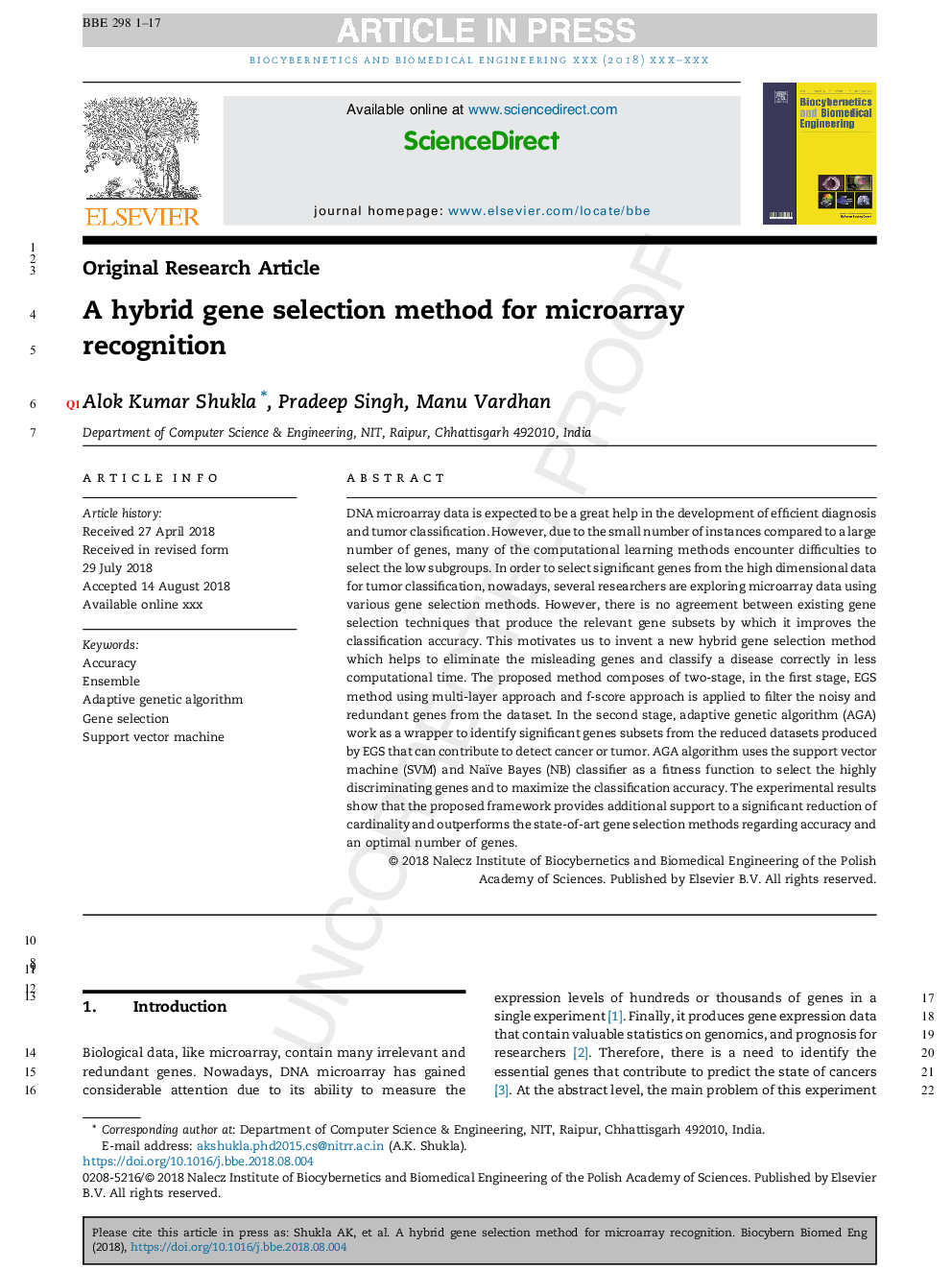| Article ID | Journal | Published Year | Pages | File Type |
|---|---|---|---|---|
| 11032584 | Biocybernetics and Biomedical Engineering | 2018 | 17 Pages |
Abstract
DNA microarray data is expected to be a great help in the development of efficient diagnosis and tumor classification. However, due to the small number of instances compared to a large number of genes, many of the computational learning methods encounter difficulties to select the low subgroups. In order to select significant genes from the high dimensional data for tumor classification, nowadays, several researchers are exploring microarray data using various gene selection methods. However, there is no agreement between existing gene selection techniques that produce the relevant gene subsets by which it improves the classification accuracy. This motivates us to invent a new hybrid gene selection method which helps to eliminate the misleading genes and classify a disease correctly in less computational time. The proposed method composes of two-stage, in the first stage, EGS method using multi-layer approach and f-score approach is applied to filter the noisy and redundant genes from the dataset. In the second stage, adaptive genetic algorithm (AGA) work as a wrapper to identify significant genes subsets from the reduced datasets produced by EGS that can contribute to detect cancer or tumor. AGA algorithm uses the support vector machine (SVM) and Naïve Bayes (NB) classifier as a fitness function to select the highly discriminating genes and to maximize the classification accuracy. The experimental results show that the proposed framework provides additional support to a significant reduction of cardinality and outperforms the state-of-art gene selection methods regarding accuracy and an optimal number of genes.
Related Topics
Physical Sciences and Engineering
Chemical Engineering
Bioengineering
Authors
Alok Kumar Shukla, Pradeep Singh, Manu Vardhan,
